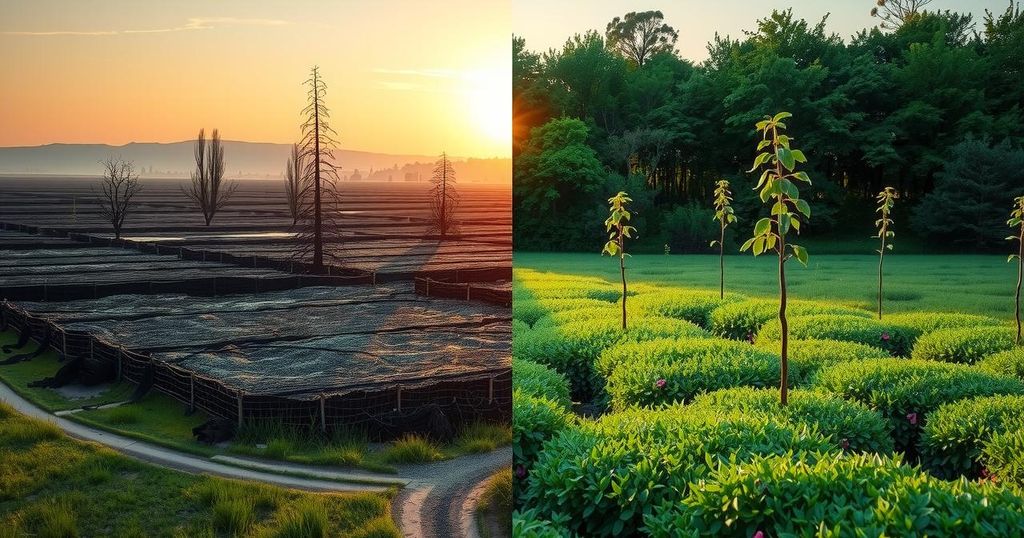Farmers in Bolivia are deciding between continuing to burn land for agriculture or planting trees to combat intensifying droughts after record-breaking wildfires devastated millions of hectares of forest. The Bolivian Institute for Forest Research reported that about 10.7 million hectares of dry tropical forest were lost last year, prompting a reevaluation of farming practices in the region.
In the aftermath of the most devastating wildfires in Bolivian history, farmers are confronted with a challenging decision: whether to continue burning land for agricultural expansion or to invest in tree planting to address the increasing severity of drought conditions. Last year, approximately 10.7 million hectares (26.4 million acres) of dry tropical forest were consumed by flames, an area comparable in size to Portugal, according to the Bolivian Institute for Forest Research (IBIF). This immense loss of forest raises significant questions about sustainable agricultural practices in the region.
In summary, Bolivian farmers are at a crossroads regarding land management strategies following unprecedented wildfires. The choice between traditional agricultural expansion through burning and adopting more sustainable practices like tree planting is critical in mitigating environmental degradation and adapting to climate change. The decisions made in the coming months will have lasting implications for local ecosystems, agricultural viability, and community resilience against climate impacts.
Original Source: www.djournal.com




